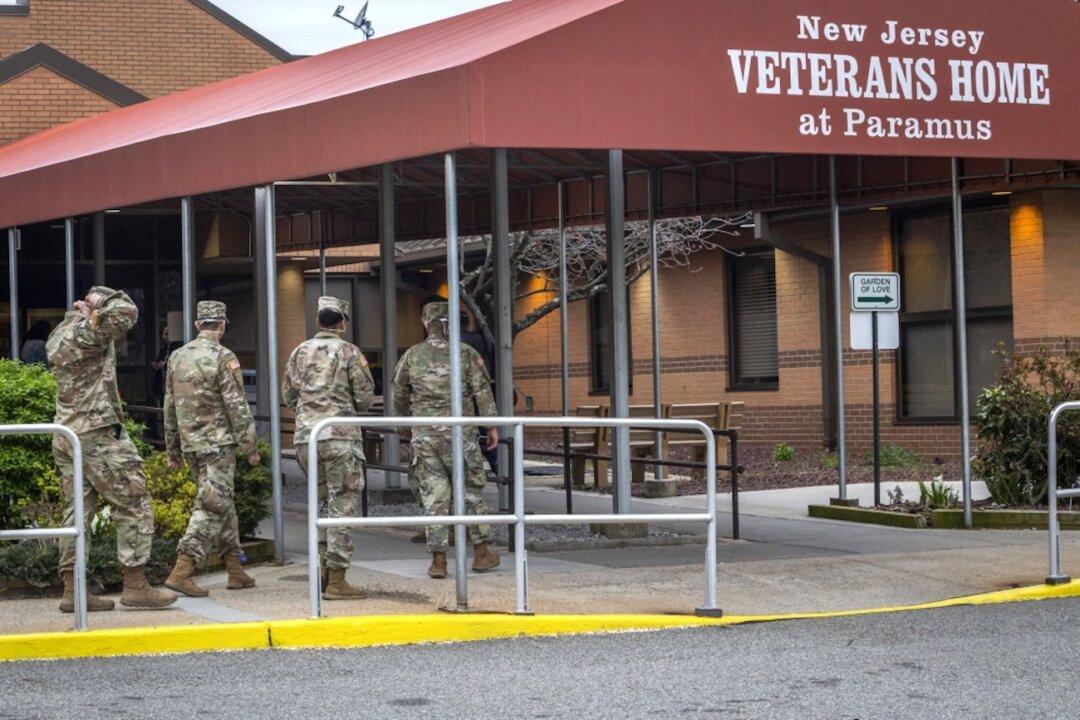The residents of two state-run veterans’ homes in New Jersey had their Fourteenth Amendment rights “systematically violated” by the state, according to the Department of Justice.
The department, in a Sept. 7 report, said it had found “reasonable cause to believe” that the state failed to provide adequate care to residents of the Menlo Park and Paramus Veterans Memorial Homes during the COVID-19 pandemic and that those failures are ongoing.





